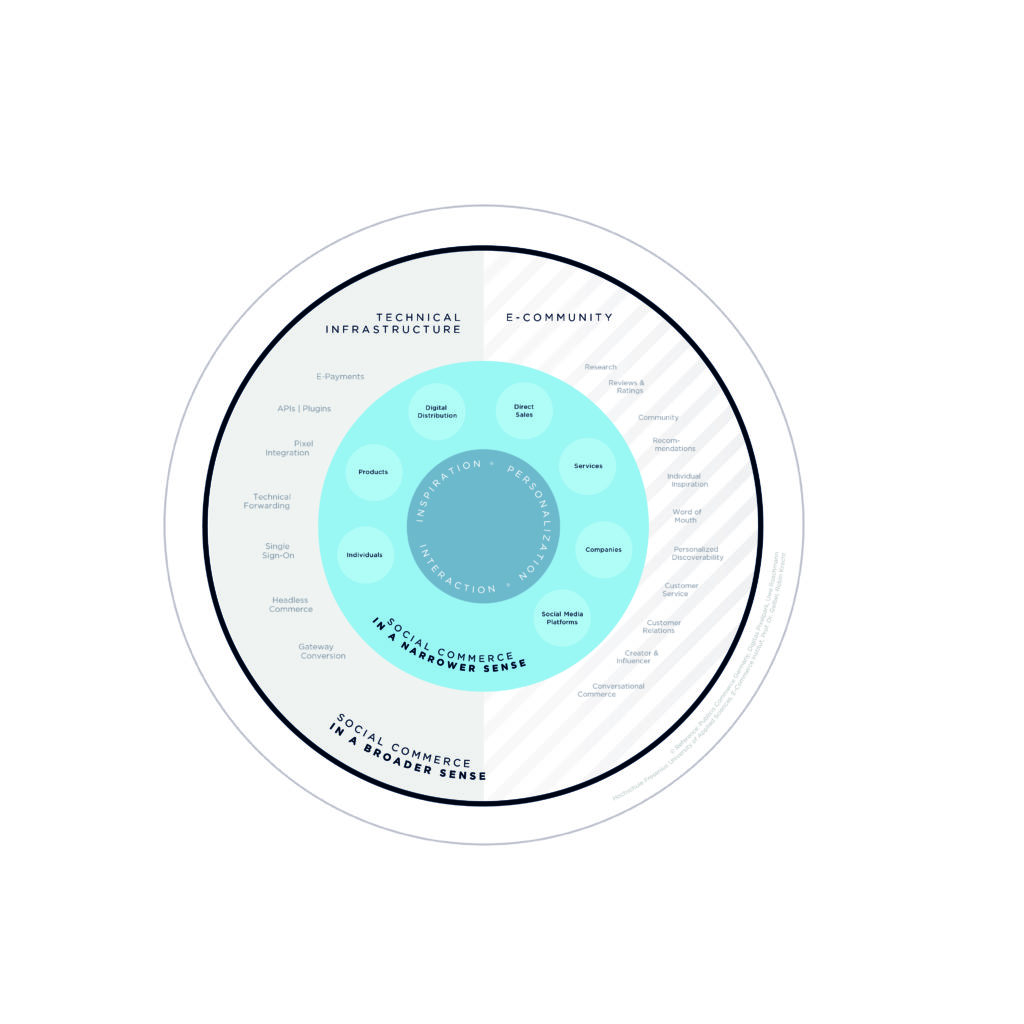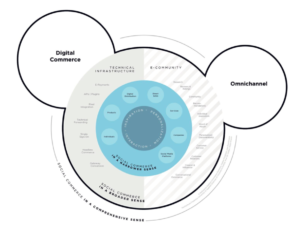Social Commerce – Origin and meaning
Social commerce has recently become increasingly important. As a comparatively new area within e-commerce, however, the term social commerce has not yet been clearly defined and demarcated, both in terms of the scope of services and the associated opportunities and risks in practical implementation.
The E-Commerce Institute Cologne at the Fresenius University of Applied Sciences, together with Publicis Commerce Germany, Digitas Pixelpark and Facebook, has therefore pursued the question of a clear definition in a research project and have undertaken a strategic analysis and classification in three stages for a detailed and comprehensive definition of the term social commerce. In addition, various project groups and master’s theses by lecturers and students at Fresenius University of Applied Sciences are continuing to advance the research topic.
A first publication of the results will take place as a scientific “Working Paper” as well as chronologically based on it in the context of the online conference “International Scientific-Practical Conference 2021 (ISPC 2021)”. Further information here.
Based on this first publication, concrete implementations (best practices) and project realizations (case studies) will be examined in a further step. The working paper will be available for publication in full length in German and English.
Excerpt from the working paper:
1. Social Commerce in the narrower sense (i.n.s.)
Social commerce is a holistic communication, marketing and sales strategy for products and services that is based on personalization, inspiration and direct interaction via social media platforms.
Fig.1: Social commerce model in the narrower sense (Source: own representation)
2. Social commerce in the broader sense (i.b.s.)
Social commerce is a full funnel communication, marketing and sales strategy for products and services that is achieved through personalization, inspiration and direct interaction via social media platforms, as well as the creation or use of an e-community and the implementation of the technical infrastructure.
Abb. 2: Social commerce model in the broader sense (Source: own representation)
3. Social commerce in a comprehensive sense (i.c.s.).
Social commerce is a full funnel communication, marketing and sales strategy for products and services through personalization, inspiration and direct interaction via social media platforms as well as the creation or use of an e-community and the implementation of the technical infrastructure that enables integrated digital commerce and omnichannel approaches.
Abb. 3: Social commerce model in a comprehensive sense (Source: own representation)
Click here for the Working Paper:



